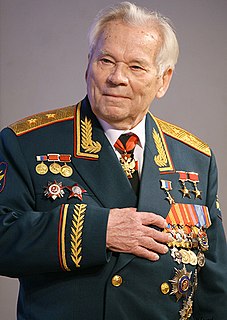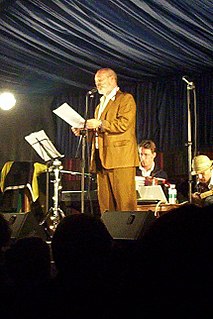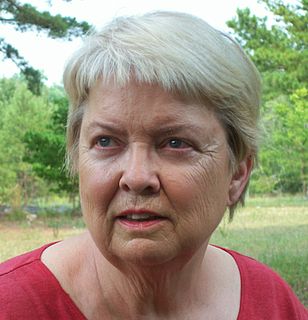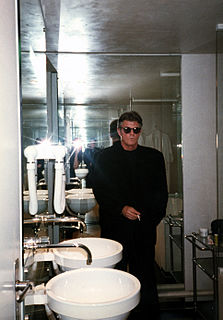A Quote by Carl Sagan
Today, we're still loaded down - and, to some extent, embarrassed - by ancient myths, but we respect them as part of the same impulse that has led to the modern, scientific kind of myth. But we now have the opportunity to discover, for the first time, the way the universe is in fact constructed as opposed to how we would wish it to be constructed.
Related Quotes
It is the Germans who are responsible for the fact that I became a fabricator of arms. If not for them, I would have constructed agricultural machines. (...) If someone asks me how I can sleep at night knowing that my arms have killed millions of people, I respond that I have no problem sleeping, my conscience is clean. I constructed arms to defend my country.
Zionism itself has paradoxically come to adopt some antisemitic logic in its hatred of Jews who do not fully identify with the politics of the state of Israel. Their target, the figure of the Jew who doubts the Zionist project, is constructed in the same way as the European antisemites constructed the figures of the Jew – he is dangerous because he lives among us, but is not really one of us.
A myth is a way of making sense in a senseless world. Myths are narrative patterns that give significance to our existence. Whether the meaning of existence is only what we put into life by our own individual fortitude, as Sartre would hold, or whether there is a meaning we need to discover, as Kierkegaard would state, the result is the same: myths are our way of finding this meaning and significance.
It [also] lives on its history, now, to some extent: its achievements [ of the Commonwealth] in Rhodesia and South Africa, which were enormous. And they'll live on that for some time, I guess. And there is still - I'm out of touch with it now, of course - but I still think there is a degree of cooperation at the economic level, to some extent, with the more developed countries helping the less developed. How substantial that is now, I simply am not versed.
The Gaia Hypothesis of James Lovelock [and Lynn Margulis] puts forward a scientific view of the living Earth, which in one respect is modern, empherical, scientific, in another respect re-awakens an ancient archetype, which in fact is so clearly suggested by the very name of the hypothesis, Gaia, the Greek name for Mother Earth.
With respect to some of the specific legislation or initiatives that I've made, it's true that Republicans often opposed these things. Sometimes they opposed them because I proposed them. Now that they are responsible for governing, I think they'll find that reversing them would be counterproductive.
I came to writing mysteries through poetry and still think that a well-constructed mystery is very much like a well-constructed sonnet. Both are artificial forms. Both start off in one direction and then, with a twist of the concluding couplet/surprising ending, both reveal that they were headed somewhere different all the time.
By almost any measure, the world is better than it has ever been. People are living longer, healthier lives. Many nations that were aid recipients are now self-sufficient. You might think that such striking progress would be widely celebrated, but in fact, Melinda and I are struck by how many people think the world is getting worse. The belief that the world can’t solve extreme poverty and disease isn’t just mistaken. It is harmful. That’s why in this year’s letter we take apart some of the myths that slow down the work. The next time you hear these myths, we hope you will do the same.
Now the story of Christ is simply a true myth: a myth working on us the same way as the others, but with this tremendous difference that it really happened: and one must be content to accept it in the same way, remembering that it is God’s myth where the others are men’s myths: i.e., the Pagan stories are God expressing Himself through the minds of poets, using such images as He found there, while Christianity is God expressing Himself through what we call 'real things'.
Religion is not about accepting twenty impossible propositions before breakfast, but about doing things that change you. It is a moral aesthetic, an ethical alchemy. If you behave in a certain way, you will be transformed. The myths and laws of religion are not true because they they conform to some metaphysical, scientific or historical reality but because they are life enhancing. They tell you how human nature functions, but you will not discover their truth unless you apply these myths and doctrines to your own life and put them into practice.



































